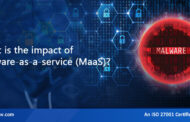In what appears to be a stunning news, WhatsApp has informed its clients that its conclusion to-end encryption highlight that it shields each client’s visits with, does not remain encoded once supported up on Google’s servers. In a report on its FAQ area, WhatsApp included a note marked as ‘Important’ which read, “Media and messages you back up aren’t protected by WhatsApp end-to-end encryption while in Google Drive.”
The update from WhatsApp comes days the Facebook-possessed application educated clients that it had hit an arrangement with Google which guarantees that visit reinforcements will never again be eating into their Google distributed storage space, starting 12 November.
As noted by the Economic Times in a report, WhatsApp had illuminated in 2017 that information supported up and put away on Google Drive isn’t encoded. Yet, it was accepted that WhatsApp had achieved an agreement with Google to leave client information encoded while it is sponsored up on Google Drive.
This would raise facilitate eyebrows on WhatsApp’s conclusion to-end encryption highlight which has fallen under the administration’s scanner of late. The Center has approached the informing stage to offer traceability of messages sent on the application to which WhatsApp reacted saying that the organization can’t get to client messages as a result of end-to-end encryption.
Experts contend that it is a component offered by WhatsApp to guarantee clients don’t lose their talks while exchanging gadgets. Krishna Kothapalli, a free security scientist addressing Economic Times notices, “As a WhatsApp client you have the decision to not reinforcement your information to Google Drive. They (WhatsApp) are not compelling you to back up. It is a component. Thus, on the off chance that you trust Google, you can empower it.”Looking at it from a protection perspective, however, you can kick back and not be excessively troubled on the grounds that Google at their end as of now encrypts records on their servers. Yet, not at all like WhatsApp, has Google additionally at last controlled the keys for encryption which they may let out to law implementation experts based on a warrant.
For more updates on the eScan blog, click here.







